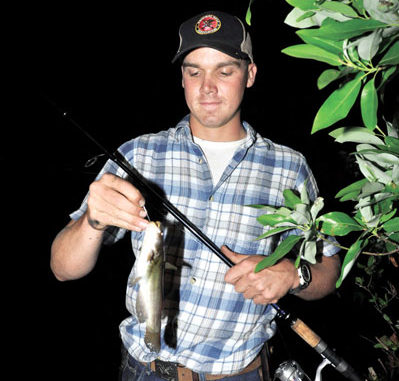
Bullheads are king at this natural lake in the middle of the Croatan National Forest.
Any map of eastern North Carolina will show a moderate-sized hole in the middle of a vast area of virtual nothingness: the 160,000 acres of Croatan National Forest. Southeast of Catfish Lake waterfowl impoundment, where duck hunters head each hunting season, the lake shares the name, taunting the adventurous angler to give fishing for catfish a try.
But are there really any catfish in Catfish Lake?
Southeast of Catfish Lake are Great Lake, Long Lake and Little Lake. To the southwest, Catfish Lake South Wilderness claims the remainder of an area void of cities, towns or freeways. What’s amazing is that a road even runs near Catfish Lake. Even most of the forest surrounding the lake is old growth, with roads never needed even to haul logs.
Nevertheless, Catfish Lake is accessible from Catfish Lake Farm Rd., which curves lazily along the northeastern shoreline of the 921-acre Carolina bay lake. Driving along the sandy road reveals several smooth, sandy beaches off to the side or at vehicle turnouts.
At night, the lights powered by a generator at a cabin built on the southwestern shore provide the only illumination, except for the stars and moon. Some visitors come to watch the stars and a campfire; most fishermen cast from a plastic chair or folding campstool in the glow of a lantern; turning the pickup truck around and fishing while sitting on the tailgate will work as well as a chair.
Robert Bissett, who is stationed at nearby Camp Lejeune, rested his spinning rod against the open door of an SUV. He tied on a hook, then pinched a split shot on the line before rummaging around in the back for a sack that held a store-bought carton of worms.
“I was fishing at another spot around the lake, but some other Marines came up, and they were having way too much fun,” Bissett said. “I came here for the peace and quiet, so I moved where there weren’t any other vehicles.”
Bissett baited his hook with an entire nightcrawler, leaving the head and tail writhing to attract a fish’s attention. He walked out to the tip of a shoreline peninsula beside a well-worn beach. Stepping on the bay tree roots jutting out over the water above the undercut bank, he balanced along a well-worn footpath. Adding a drop of WD-40 to the worm, he cast it into the water, where the split shot carried the worm to the bottom instantly.
“I caught five catfish this afternoon before the sun went down and the other Marines showed up,” Bissett said. “I’ve never noticed a difference between how well the catfish are biting during the day or during the night. Here, the catfish always seem to be hungry.”
Bissett, a California native, is classified by the military as a “rifleman,” and is waiting a coming overseas deployment.
“I really enjoy coming here,” he said. “The catfish aren’t big. A 12-incher would be a nice one. But they’re great eating when they’re fried. The little ones are the best eating, because you can fry them whole.
“For this part of the world, Catfish Lake is a very unusual place because you can walk up to the bank and make a cast. There aren’t any weeds growing in the water to foul your hook like everywhere else you try to fish. There’s still something out there, perhaps old roots or stumps, that may hang your hook when you’re fishing on the bottom.”
Bryan Hill and Jason Turman are two other anglers who routinely fish the lake for the same reasons Bissett does. They live nearby, the access is easy, a boat is not needed and the atmosphere is relaxing.
“There are a few places where you get hung up if you fish on the bottom,” Hill said. “That’s why I use a float rig. The float keeps the hook off the bottom, but only if you cast with the wind blowing away from the bank. Sometimes, the wind is wrong, so you take off the float and hope for the best. Using a light-wire hook that will straighten out with a hard pull on the line helps a lot. It’s not like the fish you catch are going to pull hard enough to bend the hook and get away.”
Turman was fishing with a spinning rig, which is standard fare for Catfish Lake catfish. Forked sticks jutting from the sand showed where other anglers had been fishing, but a surf-rod holder works even better stuck into the sand.
“It’s nice feeling the sand beneath your feet, whether you’re on shore or wading out a little way,” Turman said. “Besides catfish, we catch some other fish. I caught a yellow perch today, but the perch are small, like the catfish.”
Catfish Lake is one of a complex of Carolina bay lakes at Croatan. Its largest sister is Great Lake. According to Bob Barwick, a fisheries biologist with the N.C. Wildlife Resources Commission, the species composition in all the lakes is typical of Carolina bay lakes.
“You find the same species in Catfish Lake and Great Lake,” Barwick said. “The fishing is little better in the Catfish Lake waterfowl impoundment canals, but fishing a natural lake like Catfish Lake can still be a lot of fun.”
Barwick said Catfish Lake was last sampled with electrofishing equipment a couple of years ago. The catfish for which the lake is named are bullheads, most-likely either brown or yellow bullheads that are species native to the lake. Other non-native catfish would have little chance of surviving the conditions at Catfish Lake.
“If someone introduced a flathead, the adult might survive for a while,” he said, “but it’s doubtful that it could ever reproduce. It’s nice to have a lake that will only support native fish, which have evolved in some harsh environmental conditions.”
Barwick said the lake is acidic, the pH ranging from 5.0 to 4.5.
“It would be very challenging for largemouth bass, bluegill or redear sunfish to survive in water with a pH that low,” he said. “But there are probably some nice yellow perch, along with some fliers and bowfin. These are the same species we see in our samplings of Great Lake.”
Great Lake has a few grass beds, and its shoreline is not very friendly to anglers fishing from the vegetation-choked banks. The reason Catfish Lake has little or no aquatic vegetation, aside from the low pH, is the darkness of the water, which, Barwick, is caused by suspended peat particles churned up from the lake bottom.
“At Catfish Lake, the water has less than six inches of visibility,” he said. “It’s so dark, the water can’t support phytoplankton. Therefore, the food base for catfish is whatever organic matter they find to eat on the bottom. It may be small clams, but we don’t know for certain what they are eating.”
Barwick said the lake is very shallow, with an average depth of four feet and a maximum depth of seven feet. The combination of flat, surrounding landscape and shallow water is another reason the water is so dark.
“You would expect a shallow lake like Catfish Lake to have lots of aquatic plant growth, but compounding the problem of naturally dark water is the wind. The wind stirs up the bottom, making the water even darker than when conditions are calm,” he said.
But the conditions that limit the abundance and diversity of fish are also what creates such a spell-binding fishing experience.
“If there were lots of fish, especially more popular gamefish such as largemouth bass or bluegill, the lake would be crowded with fishermen; there would be boats everywhere and anglers lining the banks,” Barwick said. “The bottom is so shallow and firm to a distance far away from the bank, it’s the perfect place to launch a kayak, canoe or small johnboat — or you can simply wade out to fish. If you’re looking for one of the most beautiful and distinct places to fish along the North Carolina coast and you don’t want a lot of company, you really should visit Catfish Lake. There’s no other lake like it.”

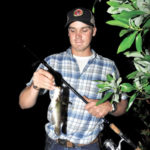
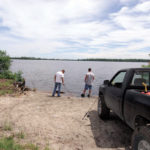
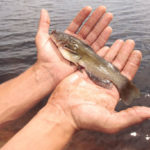
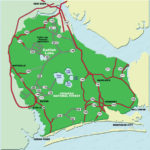
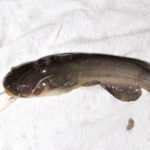

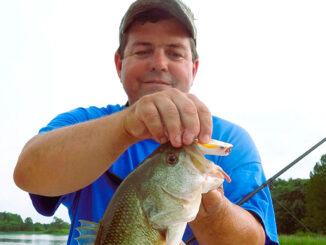
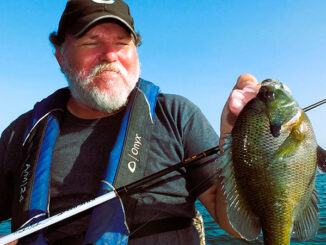

Be the first to comment